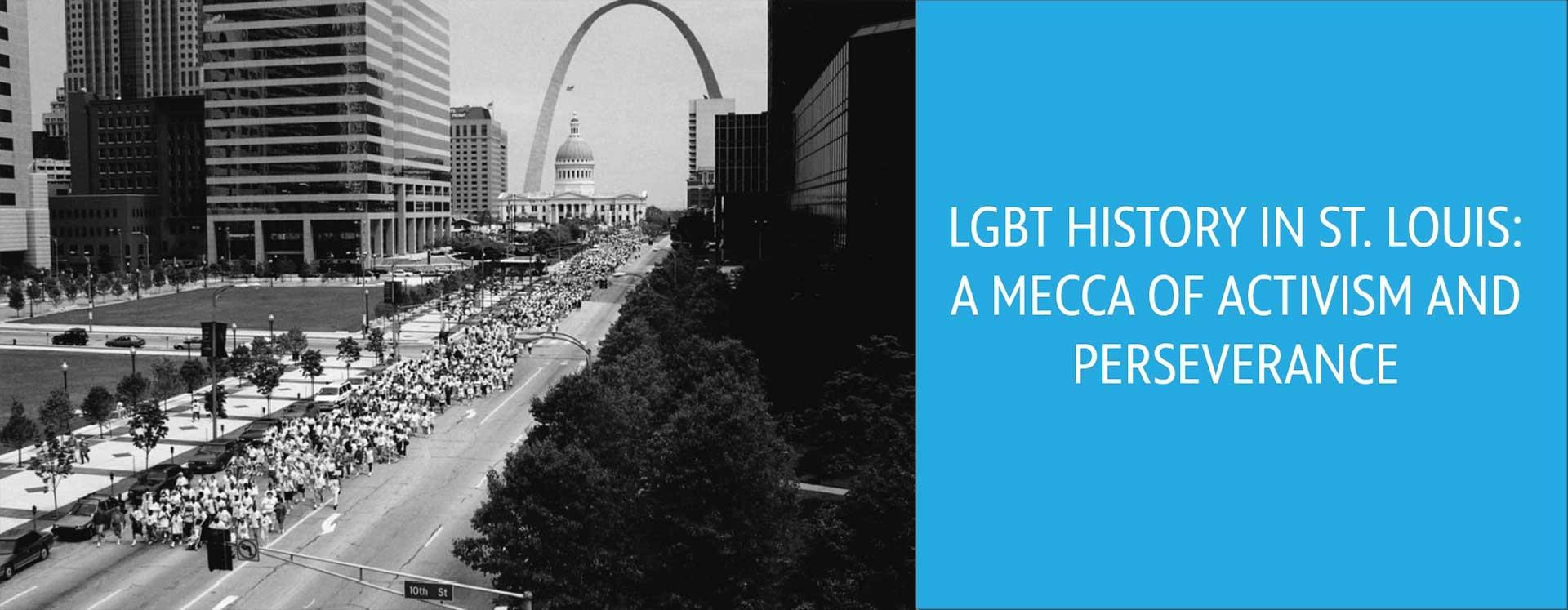Contributed by Molly Hart, Social Media Coordinator
The nooks and crannies of LGBTQ+ identities can be hard to document. And for decades, many queer folks were forced to live in the shadows for the sake of their safety. But local historian Steven Louis Brawley wants to bring St. Louis’s role in queer activism to the forefront with the St. Louis LGBT History Project.
"These hidden histories are not just a part of LGBTQ+ history but a part of the broader tapestry of American history, reminding us of the importance of diversity and inclusion in our shared past,” Brawley said.
A Treasure Trove of Artifacts
Brawley has committed his time and energy to track down artifacts, photos, and stories that help paint a vivid picture of LGBTQ+ life in St. Louis. The city serves as a mecca for people living in more rural parts of the region. Queer people can come to St. Louis for healthcare and resources less likely to be available in their hometowns.
Brawley’s efforts have revealed some incredible gems, such as an image of the comedy drag group Sex, Inc. They were once wildly popular in St. Louis and after forming in 1972, the group’s members bought the Miss Gay Missouri America pageant. The pageant enjoyed greater attendance and success under their guidance. These microhistories are central to what Brawley hopes to preserve.
In his book, Images of America: Gay and Lesbian St. Louis, Brawley sheds light on the people, places, events, and groups that are significant in LGBTQ+ history. Many of these stories were not recognized or celebrated in their time, either because of controversy or the belief that they were not significant. However, through Brawley's work, their importance is acknowledged and preserved for future generations.
Mapping and Preserving LGBTQ+ History
St. Louis is rich with LGBTQ+ historic spaces, including faith-based organizations, businesses, and bars. The LGBTQ Mapping project, led by Washington University, has identified nearly 900 such locations on an interactive map. This map allows anyone to explore and learn more about the history of these places and their significance in the LGBTQ+ community.
While records and artifacts are essential, Brawley emphasizes the importance of oral history in preserving LGBTQ+ history. It is through personal stories and memories that the true essence of these hidden histories comes to light. These stories often reveal the discrimination, arrests, bullying, and hardships faced by LGBTQ+ individuals in the past.
One innovative approach to collecting these oral histories is the "In Our Voices" video series. By reuniting people with images from the past and letting the cameras roll, the energy and authenticity of these reunions provide valuable insights into what life was like for LGBTQ+ individuals in those times.
Earlier this year, the Missouri History Museum opened the virtual Gateway to Pride exhibit which includes many of the stories and images Brawley has collected. A physical version of the exhibit is set to open in 2024.
This story, titled “LGBT History in St. Louis,” originally appeared on an episode of Living St. Louis in 2021, produced by Brooke Butler.
Check out our other LGBTQ+ History Month blogs here.











